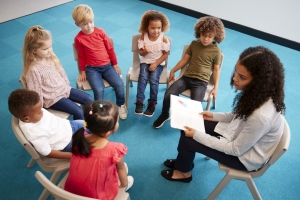There is a general perception that there is a single court for all legal matters, including crimes and small claims. While that is right to a large extent, it is worth noting that there are courts for various types of cases.
"They do not just make laws; they also consider their decisions' effect on actual families and future development. That human element is way ahead of your typical judge hearing contract disputes or burglar break-ins," says Shawna Woods of Atlanta Divorce Law Group. It is used in serious situations such as divorce, adoption, and child custody. It also deals with private incidents that affect individuals. Other courts deal with less individualistic incidents, such as business disputes and criminal charges. Keep reading to discover how these disparities affect your case and why they are significant.
Cases Heard in Family Courts
Family courts allow individuals to resolve personal and emotional legal matters. Divorces and separations can restructure family relationships and require sensitivity that is offered only by a specialist court. The family court is also responsible for child custody. They determine which children will stay with a particular family, which can significantly impact how children grow and whether they remain attached to their family. They also address property distribution in divorces and ensure property is distributed equally, something that both parties need to get on with their separate lives.
Other issues, such as child support or spousal support, are also handled in family court, which helps determine financial obligations after a split. Domestic violence cases are also handled by family courts to offer invaluable help to individuals facing domestic abuse or violence. In some cases, criminal courts may be involved.
Judges of Family Courts and Their Unique Responsibility
Family court judges focus extensively on those closest to home, unlike civil or criminal courts, which may deal with a more general mix of legal issues. Judges in family court have a specialized understanding of family law and domestic relations. Judges are sometimes psychologists or social workers, and this exposure provides them with what it takes to sort through emotionally charged situations such as custody or divorce.
Mediation and Dispute Resolution in Family Courts
Mediation and other forms of resolution are used by family courts to a large degree and quite understandably. When compared to, say, criminal courts that are very black-and-white and police-involvement driven, family courts resolve matters like custody or divorce through mediation because it is less bitter. The thought behind it is to make it easier for all parties for everyone's benefit. Mediation involves speaking to all parties involved and begins a collaborative process that reduces future conflicts, highly relevant with respect to future family relations after the legal decrees are made. It is more about not forcing a decision on parties and insisting on what is agreeable to all without making it a whole courtroom fight.
Dealing with Discontent with Family Court Decisions
Not everyone will be content with what happens after the judge strikes his gavel. If you are on the losing side of a ruling by a family court judge, you do have recourse. If you believe there was a technical error in presenting your case, a suitable recourse is to file an appeal. Appealing is not asking for a rematch because you are disappointed; it has sound grounds for the court to allow it, such as flaws in proof or mistaken interpretations of the law.
The Role of a Lawyer in a Family Court
You shouldn't go to a family court case on your own. Lawyers must prepare their cases properly because law and emotion can be complicated. They clarify your situation, represent you in court, and protect you against losing your rights through complicated legislation and intimidation. When choosing your legal representation, consider someone with a solid background in handling similar cases. Other skills like empathy and communication will also be a huge advantage. You seek legal representation, an ally, and someone to support you throughout this challenging journey.






